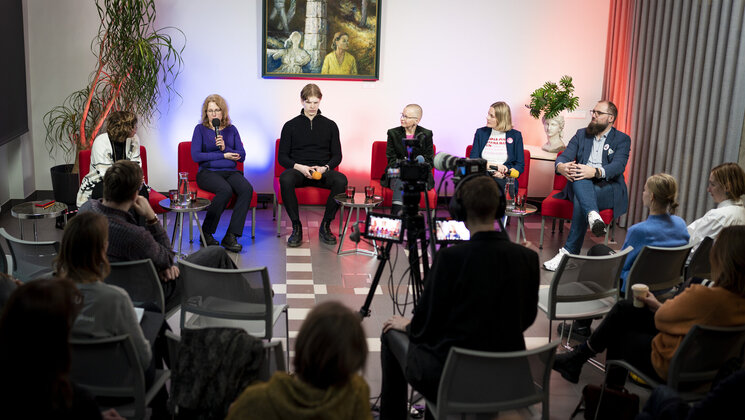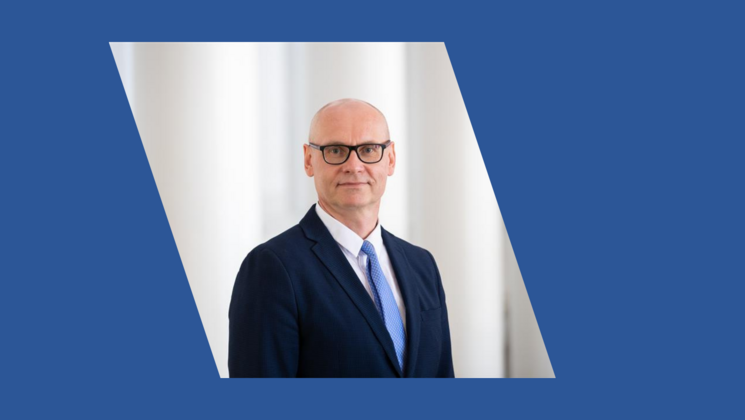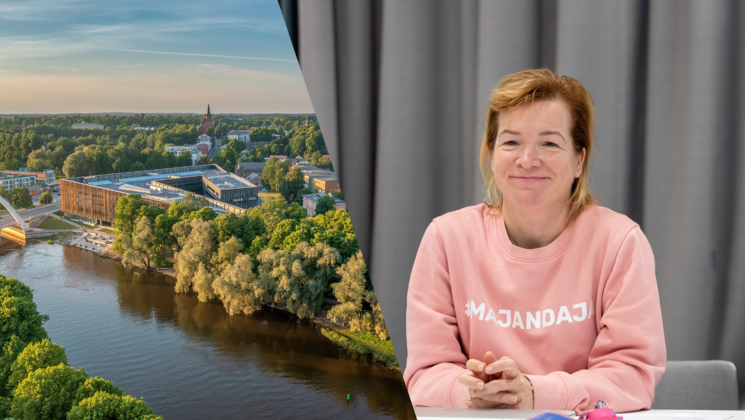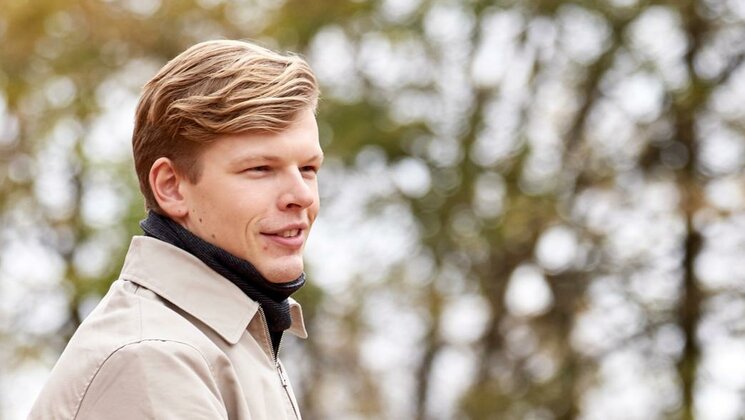-
Faculty of Arts and HumanitiesDean's Office, Faculty of Arts and HumanitiesJakobi 2, r 116-121 51005 Tartu linn, Tartu linn, Tartumaa EST0Institute of History and ArchaeologyJakobi 2 51005 Tartu linn, Tartu linn, Tartumaa EST0Institute of Estonian and General LinguisticsJakobi 2, IV korrus 51005 Tartu linn, Tartu linn, Tartumaa EST0Institute of Philosophy and SemioticsJakobi 2, III korrus, ruumid 302-337 51005 Tartu linn, Tartu linn, Tartumaa EST0Institute of Cultural ResearchÜlikooli 16 51003 Tartu linn, Tartu linn, Tartumaa EST0Institute of Foreign Languages and CulturesLossi 3 51003 Tartu linn, Tartu linn, Tartumaa EST0School of Theology and Religious StudiesÜlikooli 18 50090 Tartu linn, Tartu linn, Tartumaa EST0Viljandi Culture AcademyPosti 1 71004 Viljandi linn, Viljandimaa EST0Professors emeriti, Faculty of Arts and Humanities0Associate Professors emeriti, Faculty of Arts and Humanities0Faculty of Social SciencesDean's Office, Faculty of Social SciencesLossi 36 51003 Tartu linn, Tartu linn, Tartumaa EST0Institute of EducationJakobi 5 51005 Tartu linn, Tartu linn, Tartumaa EST0Johan Skytte Institute of Political StudiesLossi 36, ruum 301 51003 Tartu linn, Tartu linn, Tartumaa EST0School of Economics and Business AdministrationNarva mnt 18 51009 Tartu linn, Tartu linn, Tartumaa EST0Institute of PsychologyNäituse 2 50409 Tartu linn, Tartu linn, Tartumaa EST0School of LawNäituse 20 - 324 50409 Tartu linn, Tartu linn, Tartumaa EST0Institute of Social StudiesLossi 36 51003 Tartu linn, Tartu linn, Tartumaa EST0Narva CollegeRaekoja plats 2 20307 Narva linn, Ida-Virumaa EST0Pärnu CollegeRingi 35 80012 Pärnu linn, Pärnu linn, Pärnumaa EST0Professors emeriti, Faculty of Social Sciences0Associate Professors emeriti, Faculty of Social Sciences0Faculty of MedicineDean's Office, Faculty of MedicineRavila 19 50411 Tartu linn, Tartu linn, Tartumaa ESTInstitute of Biomedicine and Translational MedicineBiomeedikum, Ravila 19 50411 Tartu linn, Tartu linn, Tartumaa ESTInstitute of PharmacyNooruse 1 50411 Tartu linn, Tartu linn, Tartumaa ESTInstitute of DentistryL. Puusepa 1a 50406 Tartu linn, Tartu linn, Tartumaa ESTInstitute of Clinical MedicineL. Puusepa 8 50406 Tartu linn, Tartu linn, Tartumaa ESTInstitute of Family Medicine and Public HealthRavila 19 50411 Tartu linn, Tartu linn, Tartumaa ESTInstitute of Sport Sciences and PhysiotherapyUjula 4 51008 Tartu linn, Tartu linn, Tartumaa ESTProfessors emeriti, Faculty of Medicine0Associate Professors emeriti, Faculty of Medicine0Faculty of Science and TechnologyDean's Office, Faculty of Science and TechnologyVanemuise 46 - 208 51003 Tartu linn, Tartu linn, Tartumaa ESTInstitute of Computer ScienceNarva mnt 18 51009 Tartu linn, Tartu linn, Tartumaa ESTInstitute of GenomicsRiia 23b/2 51010 Tartu linn, Tartu linn, Tartumaa ESTEstonian Marine Institute0Institute of PhysicsInstitute of ChemistryRavila 14a 50411 Tartu linn, Tartu linn, Tartumaa EST0Institute of Mathematics and StatisticsNarva mnt 18 51009 Tartu linn, Tartu linn, Tartumaa EST0Institute of Molecular and Cell BiologyRiia 23, 23b - 134 51010 Tartu linn, Tartu linn, Tartumaa ESTTartu ObservatoryObservatooriumi 1 61602 Tõravere alevik, Nõo vald, Tartumaa EST0Institute of TechnologyNooruse 1 50411 Tartu linn, Tartu linn, Tartumaa ESTInstitute of Ecology and Earth SciencesJ. Liivi tn 2 50409 Tartu linn, Tartu linn, Tartumaa ESTProfessors emeriti, Faculty of Science and Technology0Associate Professors emeriti, Faculty of Science and Technology0Institute of BioengineeringArea of Academic SecretaryHuman Resources OfficeUppsala 6, Lossi 36 51003 Tartu linn, Tartu linn, Tartumaa EST0Area of Head of FinanceFinance Office0Area of Director of AdministrationInformation Technology Office0Administrative OfficeÜlikooli 17 (III korrus) 51005 Tartu linn, Tartu linn, Tartumaa EST0Estates Office0Marketing and Communication OfficeÜlikooli 18, ruumid 102, 104, 209, 210 50090 Tartu linn, Tartu linn, Tartumaa EST0Area of Vice Rector for DevelopmentCentre for Entrepreneurship and InnovationNarva mnt 18 51009 Tartu linn, Tartu linn, Tartumaa EST0University of Tartu Natural History Museum and Botanical GardenVanemuise 46 51003 Tartu linn, Tartu linn, Tartumaa EST0International Cooperation and Protocol Office0University of Tartu MuseumLossi 25 51003 Tartu linn, Tartu linn, Tartumaa EST0Area of RectorRector's Strategy OfficeInternal Audit OfficeArea of Vice Rector for Academic AffairsOffice of Academic AffairsUniversity of Tartu Youth AcademyUppsala 10 51003 Tartu linn, Tartu linn, Tartumaa EST0Student Union OfficeÜlikooli 18b 51005 Tartu linn, Tartu linn, Tartumaa EST0Centre for Learning and TeachingArea of Vice Rector for ResearchUniversity of Tartu LibraryW. Struve 1 50091 Tartu linn, Tartu linn, Tartumaa EST0Grant Office
Rector’s Office members met with EU research policymakers in Brussels

Members of the university’s Rector’s Office were in Brussels on 7 and 8 February to get an overview of the European Union’s research and higher education policy trends of the near future, convey our expectations to policymakers on funding measures for universities, and present the University of Tartu as a strong European research university.
Rector Toomas Asser said that as the European Union (EU) will be undergoing various changes soon, it is essential for the university to be aware of the upcoming changes and the opportunities to be involved in the process. “Preparations for the next EU budget period and the choice of priority issues will depend on the new composition of the European Parliament. For universities, it is important that research, innovation and higher education are at the centre of the European Parliament election debates. It is well known that the EU budget is under great pressure, so we must ensure that the budgets for the Horizon and Erasmus programmes, which concern universities, are not overshadowed by other essential investments, such as in the green and digital transition, security and aid for Ukraine,” Asser said.
During the visit, the Rector’s Office members met with Maria Leptini, President of the European Research Council (ERC), Maive Rute, Deputy Director-General of the European Commission’s Directorate-General for Internal Market, Industry, Entrepreneurship and SMEs, and Signe Ratso, Deputy Director-General of the European Commission’s Directorate-General for Research and Innovation, among others. At the Permanent Representation of the Republic of Estonia, they met with Ambassador Aivo Orav, Permanent Representative of the Republic of Estonia to the EU, Science Advisor Heidi Paju and Education and Youth Advisor Anu Peljo, the Permanent Representatives of the Ministry of Education and Research to the European Union, and Kristel Oitmaa and Carmen Kivistik, representatives of the Estonian Research Council in Brussels.
The Rector’s Office members also visited The Guild network of European research-intensive universities, of which the University of Tartu is a founding member. Also, Claire Morel, Head of the Marie Skłodowska-Curie Unit in the European Commission’s Directorate-General for Education, Youth, Sport and Culture, and Thierry Devars, an external expert on the evaluation of the Marie Skłodowska-Curie action, were present the meeting. Stijn Delauré, a representative of Belgium, currently holding the EU presidency, outlined the presidency’s main research and innovation policy areas. One of these is the ex-post evaluation of the previous Horizon 2020 framework programme, which allows the EU member states to draw conclusions and serves as a basis for preparing the next programme.
The meetings gave an overview of the main trends in European research and higher education policies. As discussions on the terms of the new framework programmes are underway, it is now the right time for countries and university networks to provide feedback. As a new issue, the European Commission is developing recommendations on research security as part of the economic security package.
At the end of the visit, members of the Rector’s Office participated in the seminar “Towards a Digital Twin for Biodiversity” at Estonia’s Representation to the EU, where a “Teaming for Excellence” project under the Horizon Europe programme for research and innovation was presented. The project is led by the University of Tartu, with Chalmers University of Technology, the Max Planck Institute and the Naturalis Biodiversity Center as partners.
Read more similar news

03.03.2025





